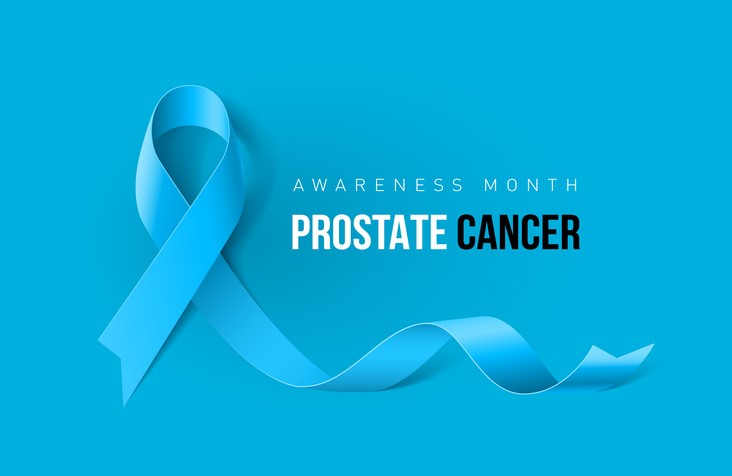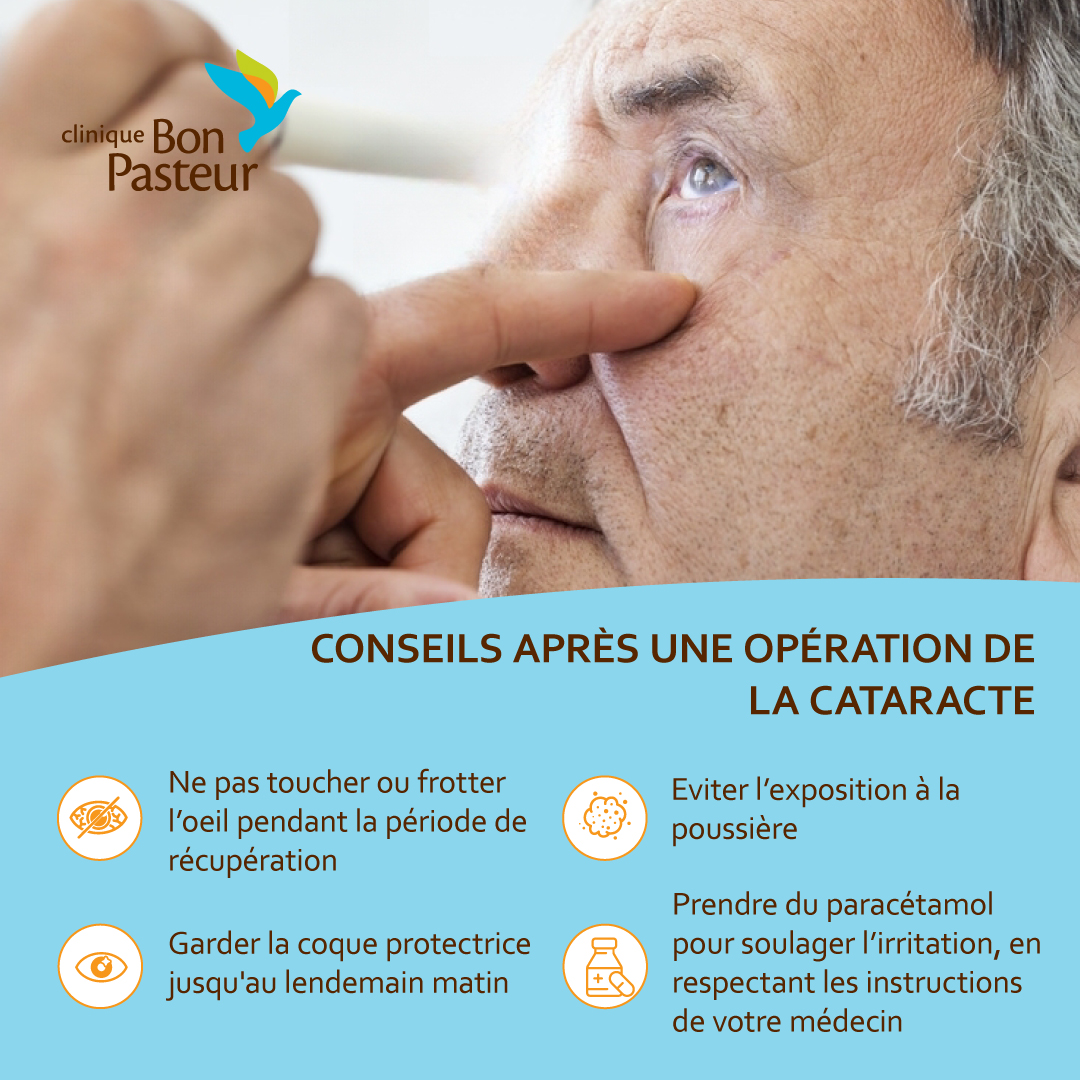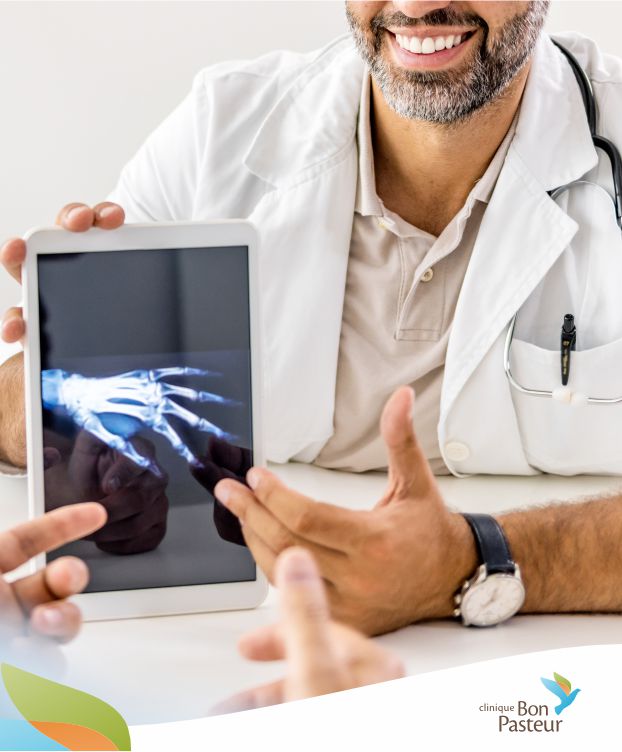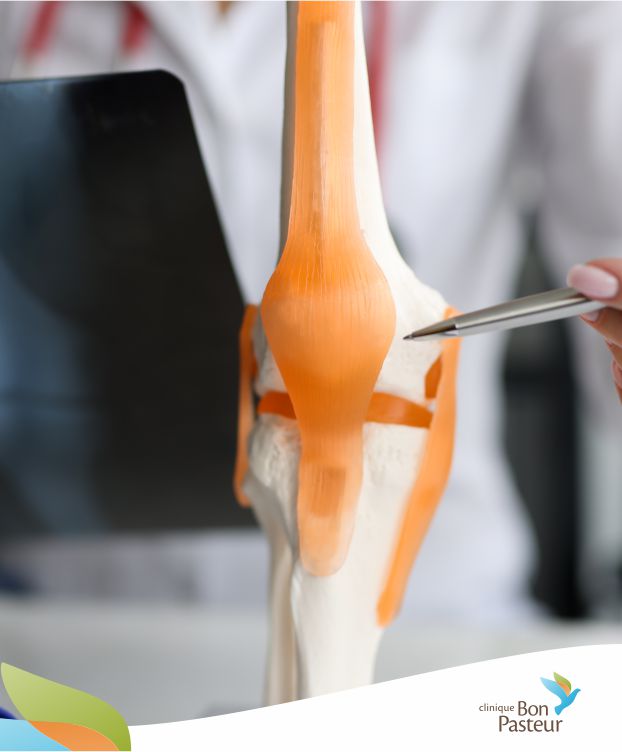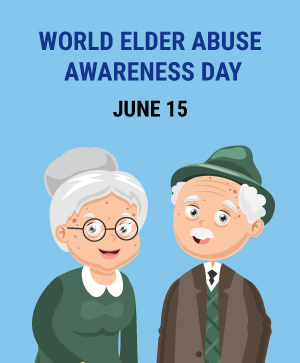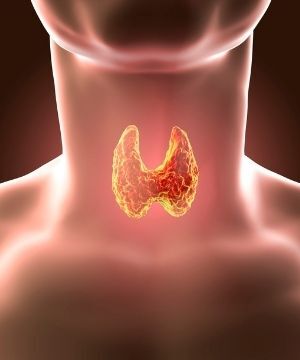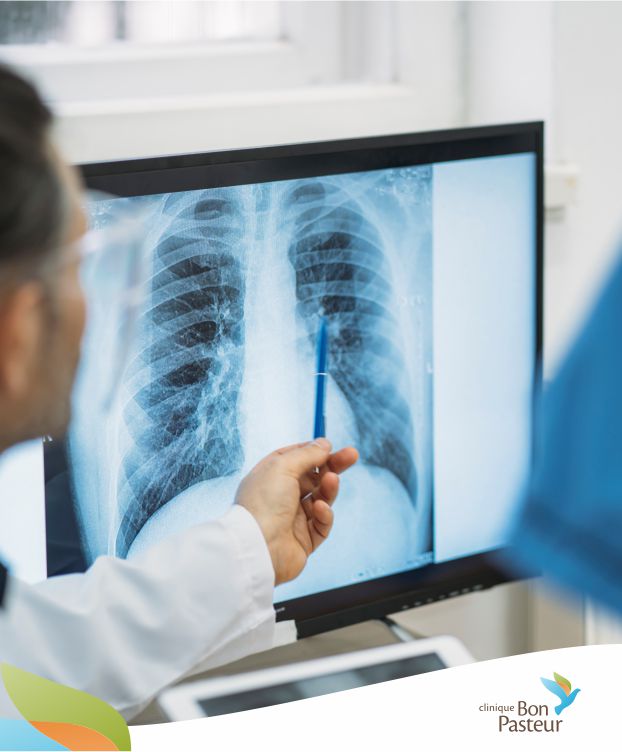The human perspective behind a surgical intervention.
July 26, 2021
If you, or a loved one has to undergo surgery, this situation can create an emotional roller-coaster, ranging from anxiety, to relief, to worry about post-surgical follow-up. But how does it work for the medical staff in terms of emotions, and how do they cope with these?
For Sophie St Mart, operating theatre supervisor at Clinique Bon Pasteur “it is important to detach oneself from the emotions than can come with a surgical intervention”. Indeed, this emotional detachment is important in order for medical professionals to carry out their responsibility to the best of their ability.
Manage patients’ concerns
Detachment requires empathy, in order for the medical team to help the patient relax upon arrival in the operating room, and to remain by their side during the procedure and after resuscitation, without being overwhelmed by their emotions.
The first step will therefore be to set the patient’s mind at rest upon arrival in the operating room, by relaxing the atmosphere. Once the procedure is complete, it is time to move on to the resuscitation stage. This step can be quite tricky because, as Sophie St Mart explains, “although there is a very minimal risk of non-resuscitation due to an uncontrollable reaction, we are always prepared for any possibility, and thus, always relieved when the procedure goes well and the patient comes to himself”.
Care must be taken for the patients to be reassured when they come to themselves after the procedure. Nurses will thus remind them where they are, because they can be quite confused, due to the sedatives. And this can give rise to quite funny situations. Sophie St Mart recalls a situation with a touch of humor: “It happened once that I talked to a patient just after resuscitation, in order to reassure him. However, this patient seemed very awake, and confided in me, without however being conscious of doing so. A little later, he could not understand how I knew these things about him, and didn’t want to believe that he could have confided in me without being able to recall that verbal exchange at all! ”
The loved ones’ emotions
If the patient has had a simple procedure, his/her relatives may show signs of anxiety before the operation. This will however be followed by a sigh of relief when the patient returns from the operating room, especially if the doctor or nurses explain that everything has gone well. Nevertheless, depending on the patient’s health situation, nurses may also have to deal with the relatives’ concerns when the patient returns from the operating room, especially if the patient’s condition will require specific care or follow-up once the patient will have left the clinic. If the medical team is faced with a situation where the patient has cancer for example, there will be concern from loved ones for follow-up, and a lot of questioning about how to handle this once they all get back home.
The medical team’s emotions
According to Sophie St Mart, “we sometimes have to face quite difficult situations in our profession, and we are humans above all” It is therefore advisable to keep a cool head in front of the patient, but if the emotional load is too high, one has to be able to let go. For her, it is important to be able to let go, but not in front of the patient or their loved ones.
Empathy is therefore very characteristic of the medical team at Clinique Bon Pasteur, especially before, during and after surgery. It is therefore not a question of being devoid of emotions, but of knowing how to manage them. As this profession is a vocation above all, Clinique Bon Pasteur is evolving in line with its philosophy: that of being a family institution where human values are coupled with a professional approach.
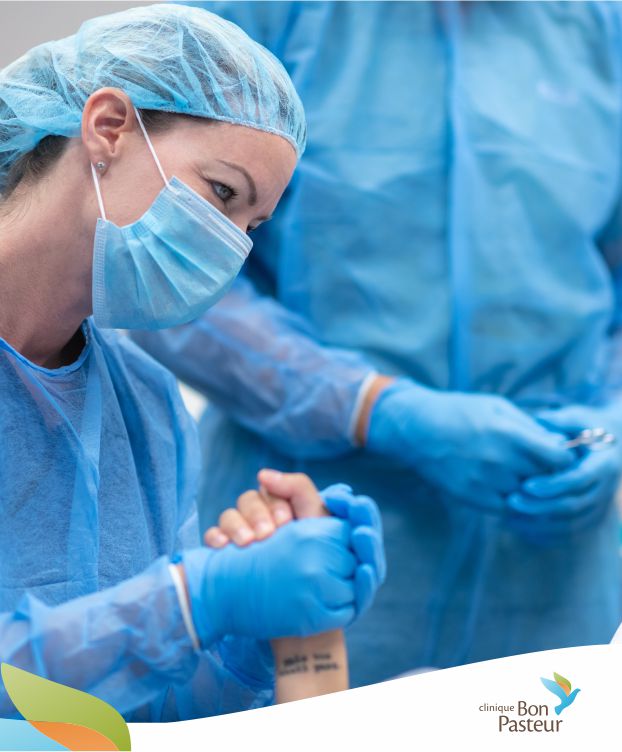
Related Article
